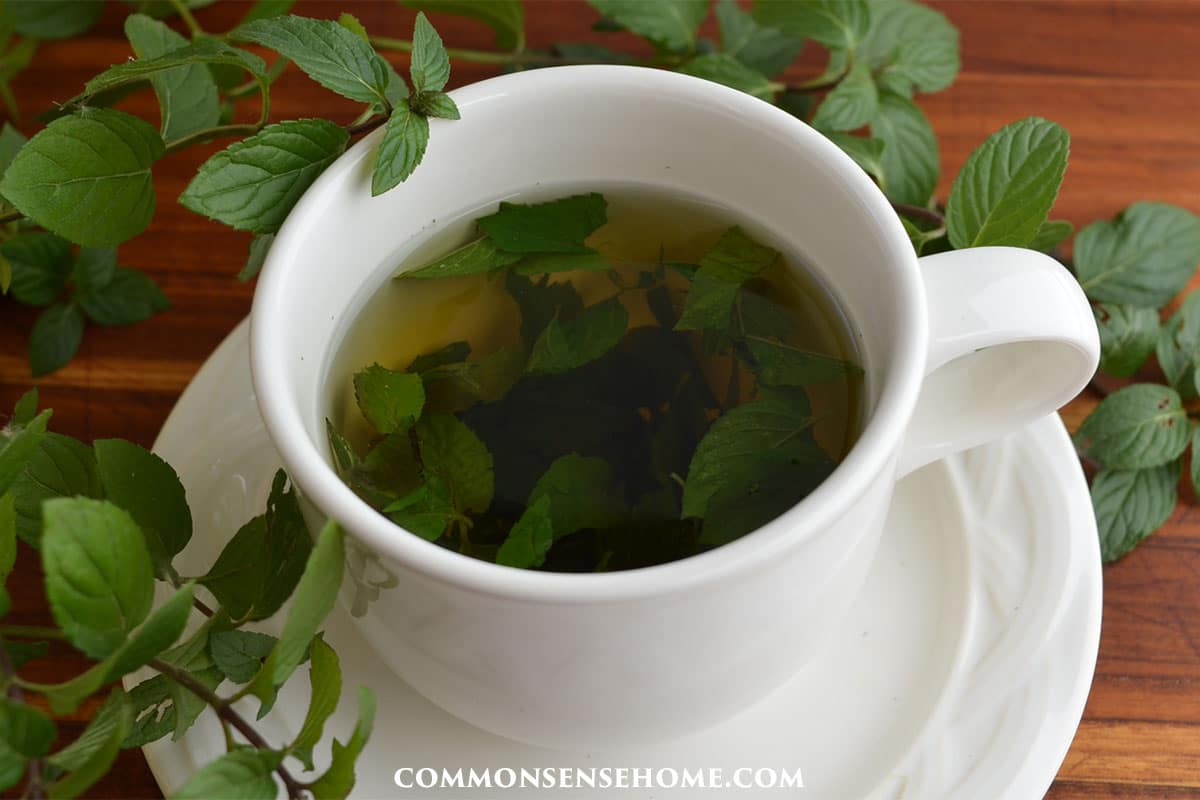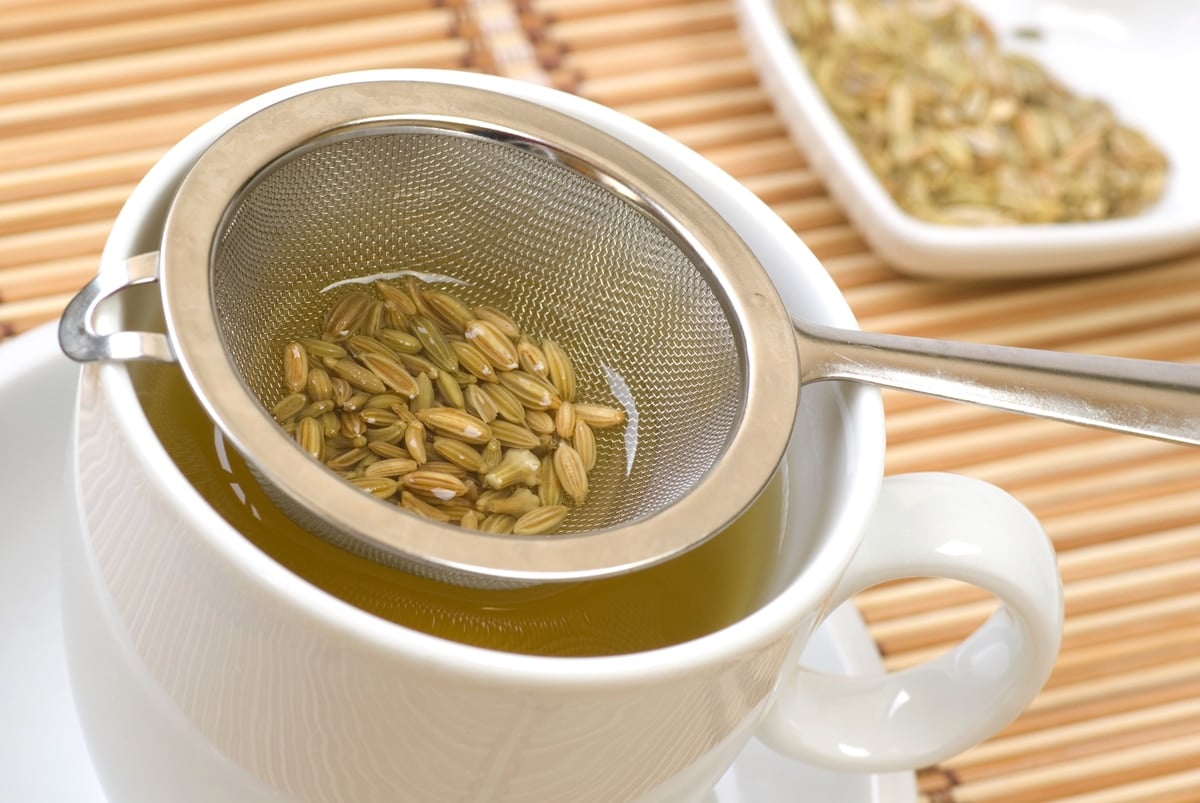12 Home Remedies for Upset Stomach
This post may contain affiliate links. Read my full disclosure here.
Upset stomach, indigestion, diarrhea and other stomach problems can make you miserable. These home remedies for upset stomach help soothe stomach pain, nausea, and vomiting. Keep these items on hand, and you’ll be set to treat an assortment of ailments.

Before we dive in, this article is mainly focused on indigestion. vomiting, or diarrhea.
You can also check out:
- 10 Home Remedies for Acid Reflux
- The Best Home Remedies for Stomach Flu Treatment
- Protect Yourself from Salmonella and E Coli Naturally
Table of contents
Home Remedy for Upset Stomach #1 – Ginger
Ginger root’s anti inflammatory properties shine when it comes to calming nausea and indigestion. Brew a cup of fresh ginger tea by steeping peeled and sliced ginger root in hot water for 10 minutes. Add a bit of honey (or ginger honey) for sweetness and take small sips.
My mom used to give me ginger ale with saltine crackers when I was a little girl. Sucking on ginger candy is another option.
#2 – Apple Cider Vinegar (ACV)
For indigestion, mix a tablespoon of apple cider vinegar into a glass of room temperature water and drink it down. Add a teaspoon of honey to mellow the flavor.
As we age, most of us produce less stomach acid, which bogs down digestion. A little extra acid helps get things moving again. You can also try Apple Cider Vinegar Tea.

#3 – Heat Therapy
Using heat can work wonders for an upset stomach, especially if it’s caused by cramps or gas. Apply a heating pad, hot water bottle, or warm compress to your abdomen for 15-20 minutes.
The warmth helps relax the muscles in your stomach and intestines, promoting better digestion and easing pain. Be sure to use a cloth between the heat source and your skin to avoid burns. Pairing heat therapy with gentle deep breathing can enhance its calming effect.
#3 – Raw Honey
Raw honey contains the enzymes diastase, invertase, and glucose oxidase, which aid in digestion and assimilation. Honey also inhibits E Coli bacteria.
Take a spoonful for indigestion, or use it with your herbal tea or ACV. Remember – look for raw honey for active enzymes.
#4 – Peppermint
Feeling queasy? Peppermint tea or sucking on peppermint candies can relax your digestive muscles, reducing cramping and nausea. We keep a tin of Altoid candies in our vehicles for relief on the go.
Peppermint tea was my “go to” drink for pregnancy nausea, and I still find it soothing for mild stomach upset.
Other herbal teas recommended for upset stomach include chamomile, catnip, cinnamon, fennel, ginger, green, lemon balm, licorice, sage, valerian and yarrow.

#5 – Papaya
Papaya fruit or papaya enzyme capsules are both effective at assisting with digestion. Papaya contains the enzymes papain and chymopapain, which are similar to digestive enzymes. Papain is used in many commercial meat tenderizers because it helps break down proteins.
Enjoy some fresh papaya or take some papaya enzymes capsules. Look for organic papaya, as much of the papaya crop (roughly 80%) is genetically modified.
#6 – Chamomile Tea
Chamomile tea doesn’t just help you unwind — it also soothes the stomach lining and relieves cramps. It’s perfect when stress is part of the reason for stomach pain and discomfort.
Would you like to save this?
#7 – Activated Charcoal
Use activated charcoal when dealing with bad food or other things in the stomach that should not be in the stomach. If we suspect food poisoning or contamination, we take activated charcoal.
Take activated charcoal with plenty of water to prevent dehydration. Do not mix it with something like chocolate milk or syrup.
#8 – BRAT Diet
The BRAT diet (Bananas, Rice, Applesauce, Toast) is a well know home remedy for upset stomachs. Bananas are easy to digest, provide quick energy, and are rich in potassium, which helps replenish lost electrolytes.
Apples have pectin, which helps with diarrhea and constipation. Rice and toast are bland and soothing. This option is commonly recommended for irritable bowel syndrome.
#9 – Baking Soda
For a sour stomach, add one half teaspoon of sodium bicarbonate (baking soda) to a glass of water, mix well and drink it down. Best for occasional use only, this fizzy drink can bring on a burp that may ease stomach pressure and will reduce acidity in the stomach.
#10 – Fennel Seeds
Chewing on fennel seeds or brewing them into tea can help with bloating and gas. They’re particularly handy after a heavy meal. See Fennel Seed – Natural Digestive Aid.

#11 – Cinnamon
A sprinkle of cinnamon in warm water or tea helps reduce bloating and cramping. Cinnamon has natural anti-inflammatory properties. Ceylon cinnamon is warm and mild, while Cassia cinnamon tastes more like cinnamon red hot candy. (I prefer Ceylon cinnamon.)
#12 – Probiotics
If I eat a less than stellar meal that does not sit well, the first thing I do is grab for a bottle of kombucha when I get home. Kombucha is a live culture food, which means it that contains friendly bacteria that help your body do its job. Yogurt is another common probiotic food.
Fermented food boost the populations of good microorganisms in your digestive tract. These are also very good to consume with a meal to avoid indigestion in the first place. We have many different probiotic food recipes to help you get started.
Common Causes of Stomach Upset
Common food related causes of upset stomach may include:
- food poisoning
- overeating ( or drinking too much)
- greasy foods
- spicy foods
Other environmental factors include stress, medications, or underlying health conditions. See “What is the Cause of Stomach Upset” for more detailed information.
This post is for informational purposes only. If pain is severe, incapacitating or last more than 24 hours, please see a trained health professional.
When pregnant, be extra careful with anything you ingest. Mint tea is okay, but large amounts of chamomile, for instance, are not recommended.
Consuming probiotics with your meal may help ease digestion. Also consider adding some acid to your meal, such as a vinaigrette dressing or a splash of vinegar or lemon juice. Bitter herbs and greens (such as chicory, endive, dandelion or other strong flavored greens) help stimulate digestive juices.
Enjoy in moderation, don’t stuff yourself. Chew slowly and thoroughly, giving your stomach time to recognize that it’s full.
I hope you find this post useful for the occasional incidence of upset stomach.

This article is written by Laurie Neverman. Laurie is a lifelong learner with a passion for natural remedies and holistic healing. She’s successfully improved her eyesight and cleared her psoriasis.
Originally posted in 2012, updated in 2024.


Fennel seed tea can work well too.
have had hiccups for 12 days straight.been to er 3 time negative result[basicly NO help]
Hiccups are caused by involuntary spasms of the diaphragm (muscle between lungs and abdomen), so let’s look at possible triggers and ways to get it to settle down.
In German New Medicine, they associate hiccups that last over 48 hours with a Breathing Conflict:
Does any of that sound like something you’ve dealt with recently? If so, taking time to acknowledge the stress point at deal with it as best you can may help resolve the hiccups.
There are also plenty of home remedies/folk remedies to try.
My best friend’s mom used to give us a spoonful of sugar and glass of water to wash it down to get rid of hiccups. Weird, but it worked, seemingly better than just drinking a glass of water alone.
Holding your breath for an extended period is also popular.
I personally like to use singing, because it requires a different type of sustained diaphragm control to sustain notes. Using your diaphragm in a different way is usually enough to break the pattern of spasms. Singing also tends to be relaxing, at least if you enjoy it, which again is good for relieving muscle tension.
I hope you can get some relief.
A glassful of warm water with a little honey and a few drops of lemon juice added to it is good for improving digestion when taken on an empty stomach.
I used juice of kale to treat gastritis and this worked for me.Today I´m cured.
Peppermint tea is soo amazing for a grumbly stomach. It works faster than pills.
I’m a peppermint tea fan, too.
well ive had the flu for over a week now it flatten me on my back ive been in bed for five days with a sickly stomach as well not very pleasent i thought i was dying at times im up now from my bed but still feel sickly ive taken all the medicines under the sun ive got a little bit of a appertight just got to give it time to pass
My husband is ill from eating very rare raw center prime rib last night February 14, 2015. at 6:00 p.m. He experienced great discomfort at 1:00 a.m. I have ACV, raw honey, baking soda and yogurt in the house. It is Sunday with an sleet storm promised for tonight and health food stores are closed. Grocery stores are open. What can I do for him. He has only taken Kroger’s antacid, “like Mylanta” and is drinking water. He is burping and in medium discomfort now at 10:15 a.m. . He is still taking an antibiotic for diverticulitis. What can I do for him now? I will check my e-mail in five and in 30 minutes.
Thank you.
If your husband is in severe pain, take him to a healthcare professional. Please be careful. Given that he has diverticulitis and is on antibiotics for the diverticulitis, eating what he did was probably a poor choice and there’s nothing I can tell you over the internet to magically make his damaged and painful intestines stop protesting the abuse. Baking soda acts as antacid. If he’s already taking antacid, more antacid is not going to help. The guy who had his stomach literally explode from baking soda act an astronomically large amount of food – like something you’d see on one of those eating contests – and then he took baking soda.
Help. The menu says “remedy #2: ….. Caution: Do not use baking soda if your stomach upset is due to excessive …”
I clicked on the link and scrolled to #2 honey. I read the whole article and comments. I read the material under baking soda.
The caution about baking soda was not mentioned. What is the instance when baking soda should not be used? Please reply before I make the mistake.
I am dealing with irritated stomach resulting from taking Keflex. Any suggestions to alleviate mild burning, gnawing and over active sensations that are helped by eating (soft/bland diet) and worsen on an empty stomach? Thanks.
I am not a doctor and cannot diagnose or treat any illness. Given that it’s an antibiotic, probiotics may help get your system back to normal sooner. Looking at the side effects of Keflex, it seems that upset stomach is a common problem and they recommend not to take it on an empty stomach.
Nice – I’ve tried several of these. Sharing on Fb.
Thanks, Adrienne.
I have kidney stone or infection bad stomach pains anything to help????
Please be careful, as kidney stones can cause quite a bit of damage and lead to infection and other complications. I don’t have anything on the site yet, but you may want to check out the discussion on Earth Clinic: http://www.earthclinic.com/CURES/kidney_stones.html
The vinegar is easy and works immediately…it isn’t really gross since I just think I’m drinking a little salad dressing …so that’s not bad. I honestly wish I could tell everyone all the wonderful benefits. Helped me control diabetes since those pills were terrible & caused horrible/PAINFUL muscle cramping! It’s wonderful and kept me healthy…I haven’t gotten sick in almost a year– since I’ve taken it daily — 1tsp in 1/2 cup water/day. And I have 3 primary schoolers around me every single day. Please read and experience the benefits and see it for yourselves. The day I neglected to take my ACV “tonic” I ate my sister’s super gassy Chili beans and my and my daughter ‘s stomachs churned churned LOUDLY for hours & suffered until I remembered ACV. IT WORKED WITHIN MINUTES. How dumb was I to forget…. I hope this helps some of you.
Pickle juice works well and it doesn’t taste too bad if you like pickles.
I’d stick with papaya, honey, or tea as they will taste alright if they happen to come back up.
Hmmmm…I wasn’t thinking full blown “hurling” upset stomach, but that’s certainly a consideration.
That works every sunday morning for me